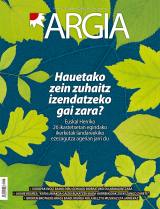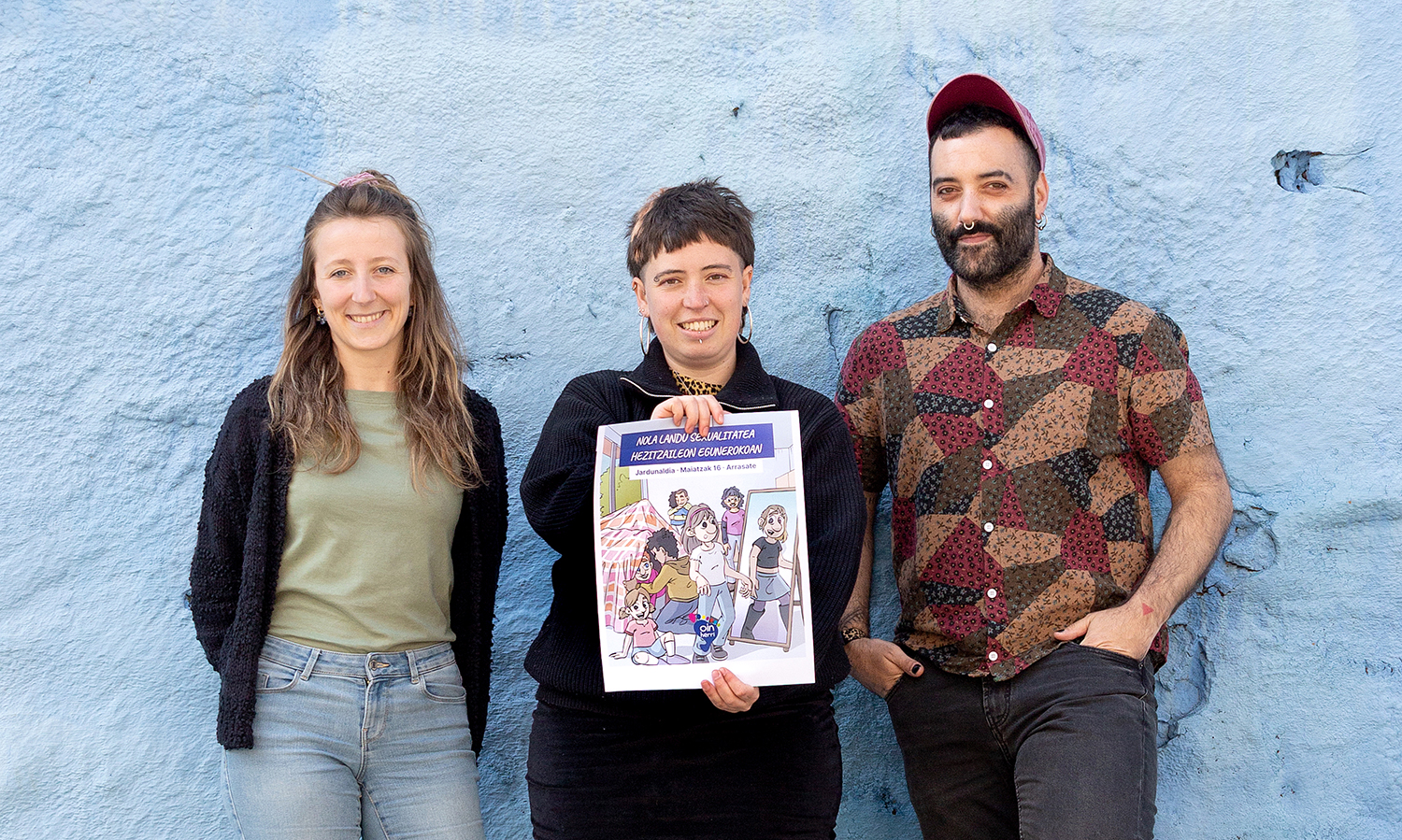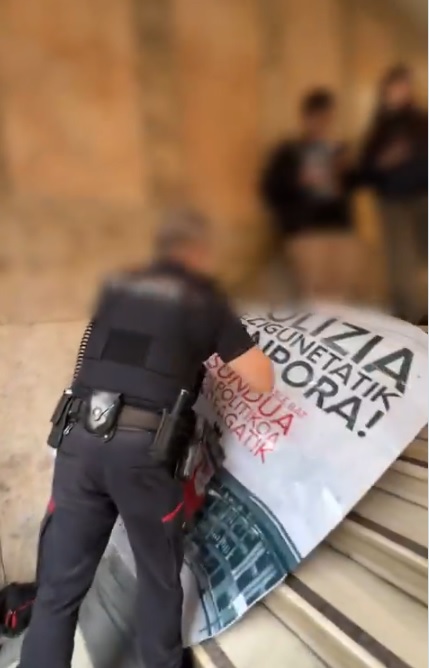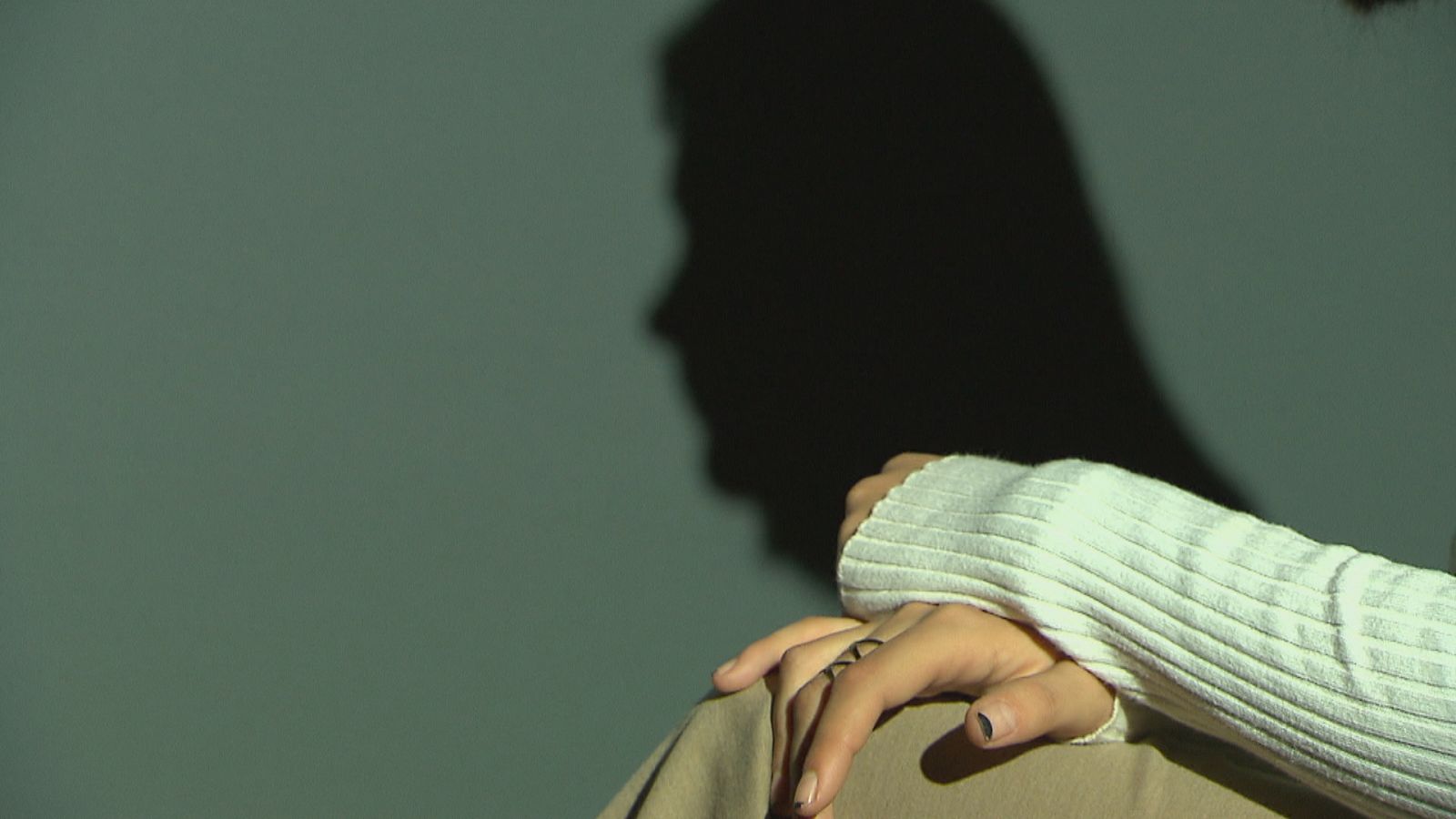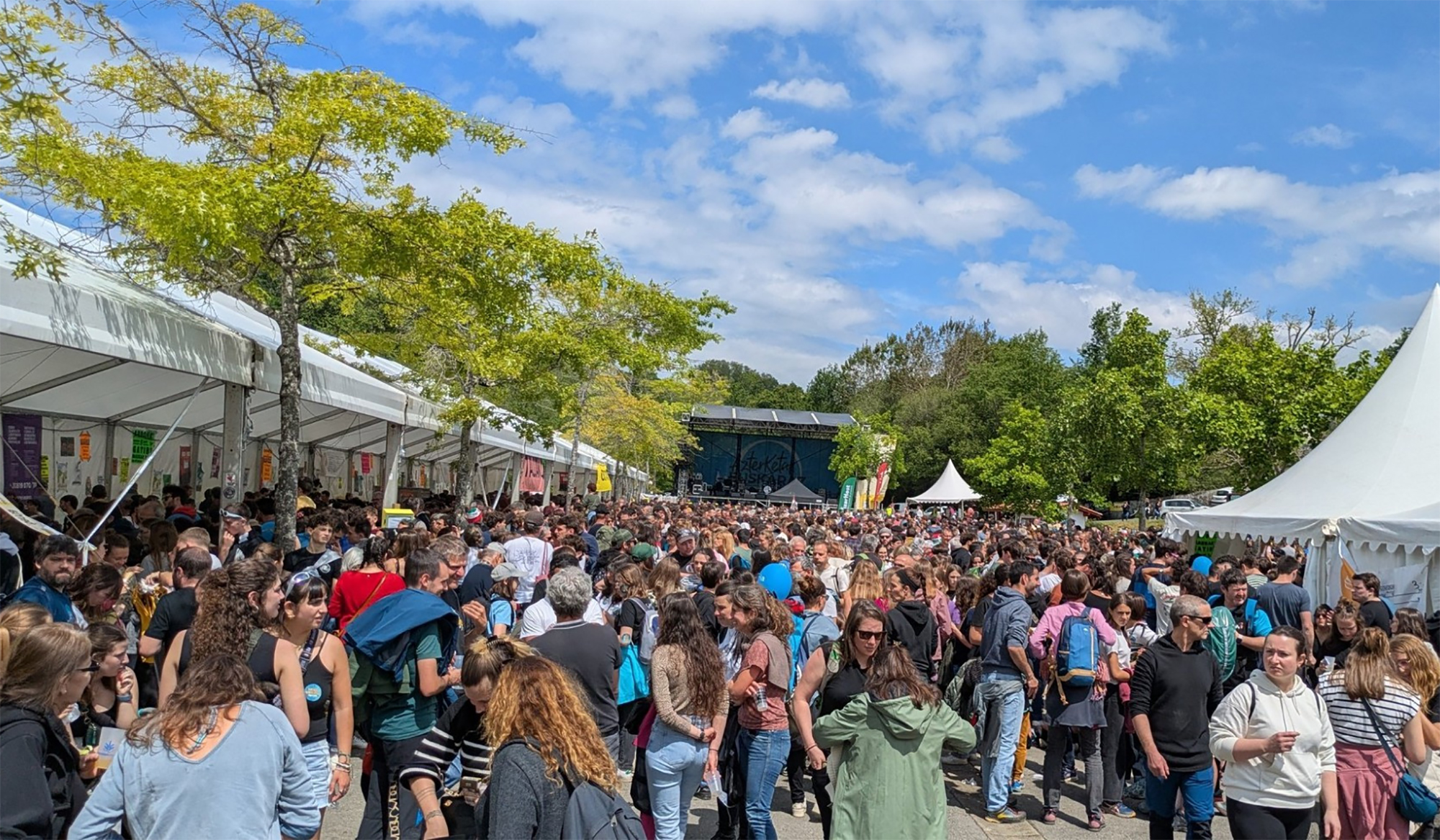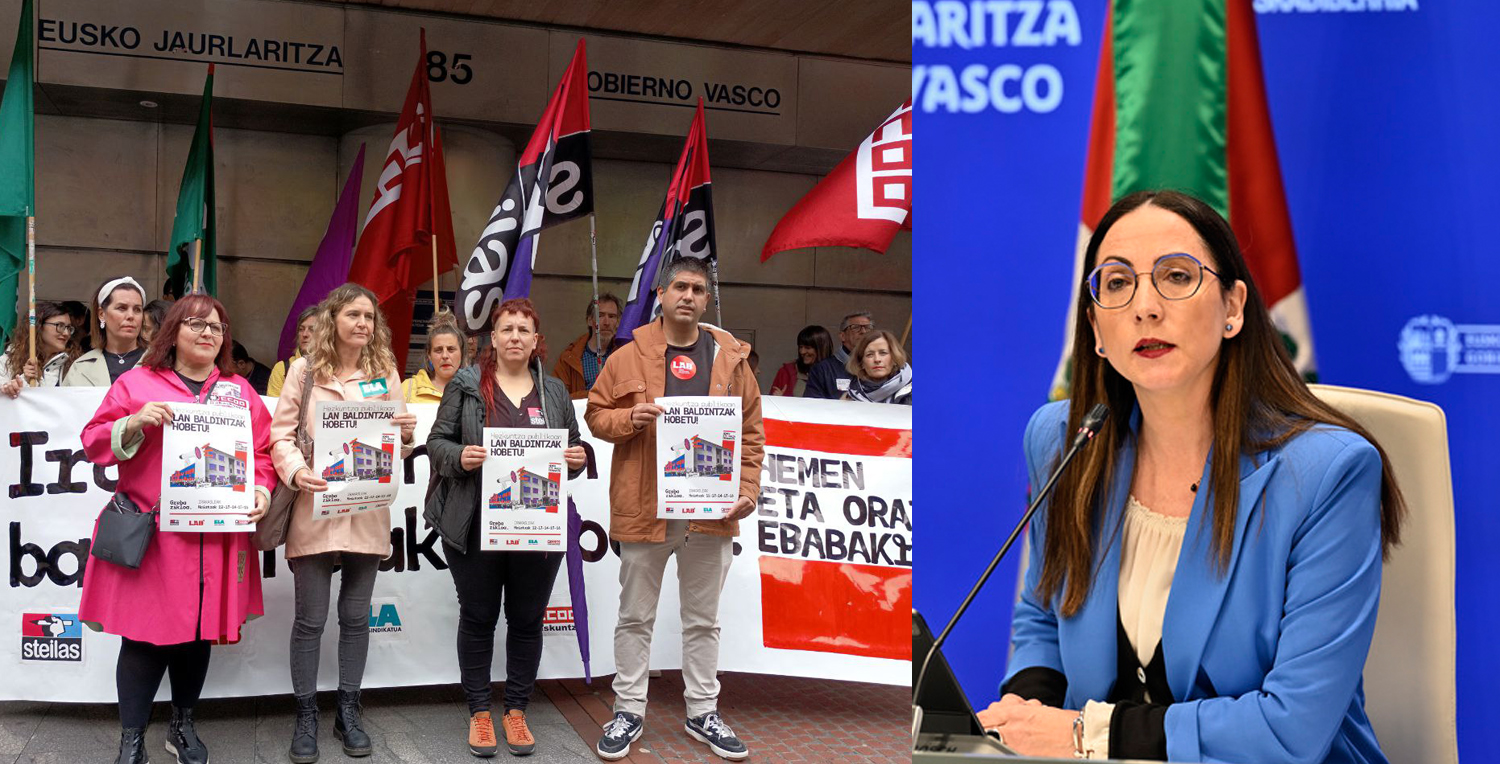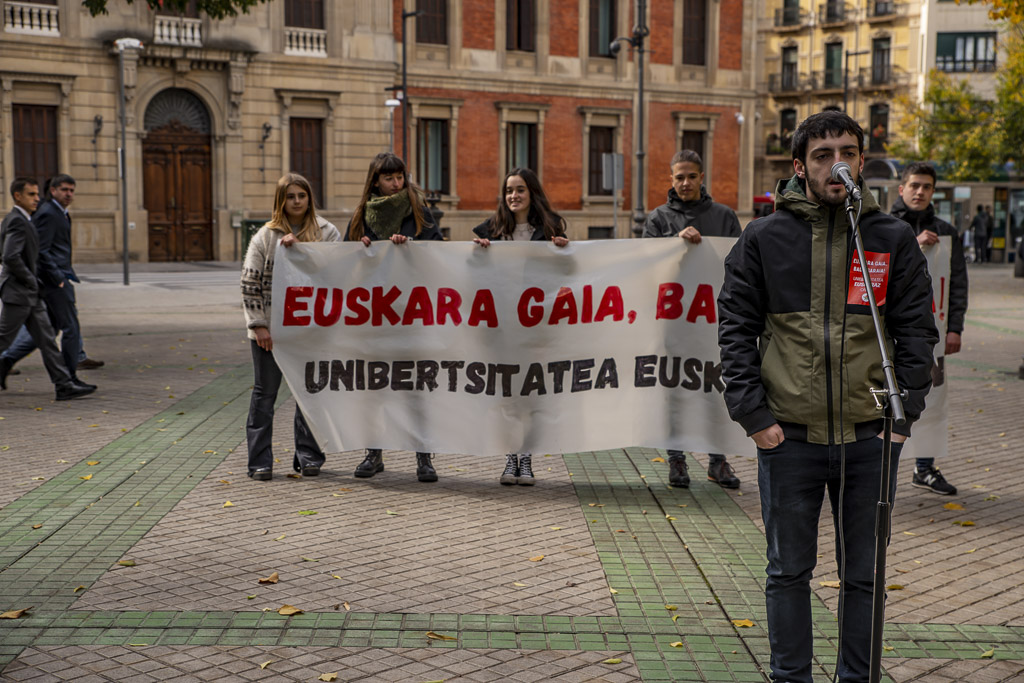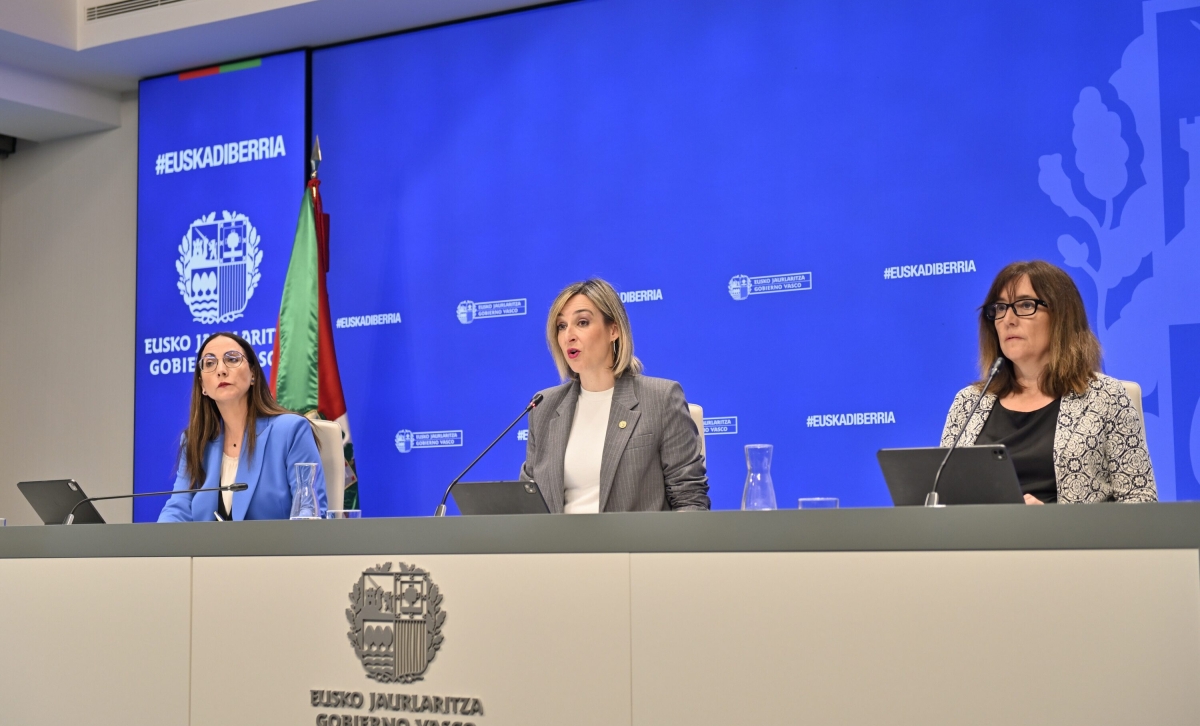"We have distributed publications to inform teachers that in the classroom you can talk about politics"
- We have spoken with Ramón Font, professor and spokesperson of the Catalan education union USTEC, about teachers charged with hate crimes, about allegations of indoctrination, about the consequences of 155 in Catalan schools, about the role of education in national identity…
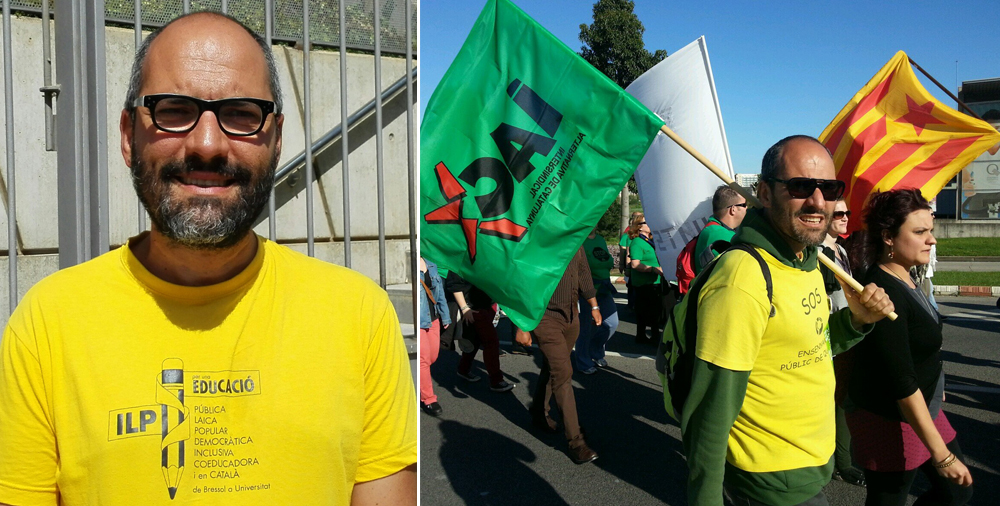
His USTEC colleague, Alex Juanmartí, will offer conferences in Pamplona and Bilbao, on 4 and 5 May, as part of the events organized by LAB Irakaskuntza on its 30th anniversary. The programme will address the role of education in the ongoing process in Catalonia. Has it played an important role? Not in the
great boom that independence has experienced since 2010, because the school does not have the ability to influence so strongly in such a short period of time, education looks long term: the seed that you put today will germinate in the future. But the school has been fundamental in the national construction, of course, in the recovery of the national identity: Faced with the prohibition of Catalan that we inherited from Franco and the formation of the National Schools in the Spanish spirit, from the 1980s on, a great boost was given to the school model based on Catalan, especially at the request of families from outside, because they wanted their children to have the same rights as those of the native. With regard to the Constitution, the school broke with the Regime of 78, unlike in other areas, and started the path of democratic and assembly structures. So far. Today we all speak Catalan, it is the language of all, and in that it has a lot to do with school. Just as some nations are built from religion (such as Ireland), here language unites us, the Catalans; that is why education has such an important role in national construction.
“The school has been fundamental in the national construction, in the recovery of national identity”
In the process, however, the Catalan school has played an important role. On 1 October, for example, the centres were key to installing the ballot boxes.
Yeah, it was to put all the pre-cooked ingredients in the oven. Two thirds of the polling stations were educational centers and in them educational communities were especially involved: teachers, fathers and mothers ... supported and facilitated the right to political participation, demonstration and self-determination, above and beyond police aggression. Not only the education community, I think that on October 1, we were all surprised, to what extent the whole society was engaged. It's going to go down in history.
The student movement is also very vivo.La
student mobilization has been the biggest I remember. 80,000 students show up on the streets of Barcelona, that has never happened. And there are the strikes organized by the student unions, the students who have stayed to sleep in the universities… So are the teachers; for example, the general strike on 8 November had an answer mainly in education. The strike was very complicated, because it was legal or not at issue, and the fact that it was illegal may have very dangerous consequences; however, over 30,000 public school teachers and 6,000 of the concerted went on strike, in addition to the students. Education almost paralyzed.
“The mobilization of the students has been the biggest I remember. As teachers; the general strike of November 8 was very complicated, and above all the response it had in education.”
On the pretext of its indoctrination in the Catalan classrooms, the Spanish Government has encouraged the campaign against teachers, through complaints judiciales.La Public Prosecutor’s Office has denounced two teachers (initially eight) for hate crimes, for commenting in class
on 1 October. In another school, between 12 and 13 teachers are charged for keeping a minute's silence in the school. In other localities, for the same crime of hatred, there are teachers and teachers of public and concerted centers who generally speak of October 1, the behavior of the police… There is also a professor or teacher who wanted to organize a class debate on October 1. The headquarters of the Civil Guard are educational centers of the villages where they exist, we do not think it is a coincidence. In addition, several educational centers are being investigated for a crime of sedition, considering that it allowed the holding of the referendum in Catalonia. I personally have two complaints from the association We Speak Spanish: a hate crime to say that I will not teach in Spanish and a sedition for the union’s commitment to the referendum. We are waiting to see what will happen to all these judgments…
From an educational point of view, how can we understand the ban in the classroom on talking and debating politics? What's more, turning it into a crime.
For a long time I have been a professor of Education for Citizenship, and I put students to discuss and put a policy issue, to learn to speak in public, to learn to argue, to exchange with respect different ideas and opinions… But they also want to ban opinion. And indoctrinating is just the opposite: saying what power sends you. That is what they want! When Citizens and PP aim to control what we say in class through the High Inspection, what they are saying in some way is that only history can be taught in a certain way, as they want. One Citizens' Leader criticized that most of the professors in Girona are from ERC. What if it was? What do you want them to be from Citizens? I don't care whether they're party, what I want is for them to do their job well.
Now we began to understand the Freedom of Professors, why in the 1970s they came up with the idea of introducing the Freedom of Professors into the Spanish Constitution, because the police went to Francoist faculties to control what the professors said. There we are again ...
“To avoid problems, some teachers have resorted to self-censorship. They want to ban opinion and indoctrinate is so just the opposite: to say what power sends you”
Witch hunting is complete: the Ministry of the Interior has encouraged parents to denounce teachers for hate crimes or indoctrination.
Yes, unlike the professors mentioned above, this does not go through the judicial route, but through the route of inspection, and the number of complaints that have come to the High Inspectorate of Education has been more massive: more than a hundred anonymous complaints for indoctrination. Contextualized, the reception of more than a hundred complaints by over a million and a half students is little, especially considering all the political and media machinery put at the service of the complaints; instead of the parents who criticize the indoctrination, we are surrounded above all by the parents who support us and encourage us, but we are human and the fact that the focus is so much on indoctrination.
How?To avoid
problems, some professors have resorted to self-censorship and have recognized us that, in case, they do not raise some issues in class. And we've distributed publications to tell teachers that in the classroom you can talk about politics and you need to talk, because for example, you can't teach Social Sciences, not to mention politics, it doesn't make sense! This is reflected in the curriculum itself. We go to schools, to reassure and support people, including legal protection.
How has 155 influenced education in Catalonia?155 had two great defeats: on the one hand, the High Inspection and Control
of Education to which we are referring by indoctrination, and on the other, the model of immersion. The immersion model has a broad consensus in Catalonia and is one of the pillars of our educational model. The Government of Spain wanted families to fill the lockers to decide whether they wanted to schooling their children in Spanish or Catalan, but the Constitutional Court itself rejected that proposal by saying that linguistic diversity is the responsibility of the communities. In this political context that defends the unity of Spain and the Government of Spain, the court itself has admitted that this goes further, because the model of immersion has a consensus that far exceeds the supporters of independence.
These have been the most important issues, but the Spanish Government has managed to impose many other measures from the back door, through 155. The abolition of the conseller of Education has allowed the pp presiding in the Spanish Territorial Assembly the opposition model it intends, has agreed with the concerted, among them the centers that segregate on the basis of sex, despite the fact that the Catalan Parliament had agreed otherwise, and has delayed the budget foreseen for education.
Putting your hand on such a fundamental pillar as education is no
coincidence… There is nothing that can determine a country’s future any longer. You see that the Catalan language is a key element in building national identity and you want to put an end to that. And in relation to that, our history, our institutions…
“The 155 has had two great defeats: Attack on the High Educational Inspection and the model of immersion. But through the back door they have managed to impose several measures”
What school do you want to build?
For us there are four points. On the one hand, as we have said, Catalan. And here we all have to speak Catalan, on which we all agree, right and left. At TV3, in a pre-election debate, I asked Inés Arramidas: “Will knowledge of Catalan be a condition for teachers?” Anyone of Citizens would say no to Spain, but here he did not dare to do so and was entangled in procrastinations, avoiding the answer. In addition, for us the school must be free (from child education to university), public, both in ownership and management, and democratic (in the choice of teachers and directions, in the participation of families…).
Donibane Garazi inguruko herri ttipi batean sortua da Bea, eta 1970eko hamarkadan ondoko eskola publiko batean ikusi zituen bortizkeria, sexu eraso eta bortxaketak salatu dizkigu. Irakasleak eragiten zizkiela tratu horiek ama eskolako eta lehen mailako haurrei, mutikoak bortizki... [+]
The Department of Education reported on diagnostic evaluations in February: He talked about the mid-stage of 2023 and the end-stage of 2024. Since the disastrous results would show that we have a structural problem, the department decided to comply with the procedure (publish... [+]









